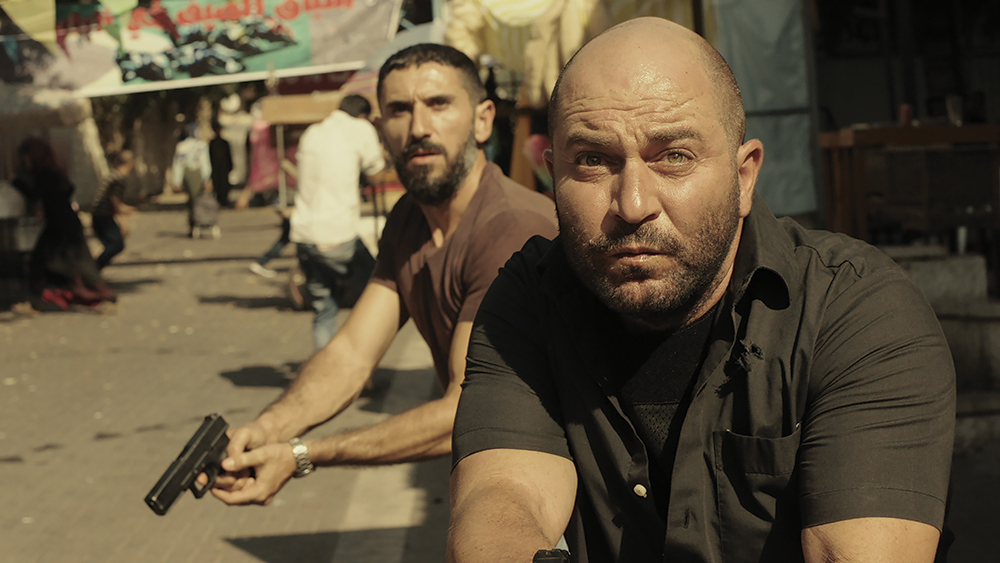OneFamily’s mission: Healing through unity and support
For over two decades, the OneFamily organization has been a beacon of hope, offering support, rehabilitation, and rebuilding services to victims of terror attacks, their families, and their communities. As tensions rise in the Middle East, the founders of OneFamily are set to bring their message to Hollywood at the Responsible Storytelling event, moderated by Andrew Wallenstein, president and chief media analyst of Variety Intelligence Platform. The event will feature a conversation with Lior Raz, the creator and star of “Fauda,” on July 25.
A mission born from tragedy
The inception of OneFamily is rooted in a deeply personal tragedy. Marc and Chantal Belzberg, who moved to Israel 32 years ago after marrying in New York, founded the organization following a 2001 terrorist attack that disrupted their daughter’s bat mitzvah party in Jerusalem. Marc recalls telling his daughter, “You’re not going to have a party. You’re going to have a project: you’ve got to go visit every little girl and little boy in the hospital and go to every house where they’re mourning and sit shiva.”
This profound experience led the Belzbergs to dedicate their lives to supporting terror victims. “After she did that, my wife and I looked at each other and said, ‘Let’s just take this on as a full-time project, to take care of all the victims of terror,’” Marc shares.
Building a legacy of support
Starting with $100,000 from their finance-related businesses, the Belzbergs have since raised over $80 million to support OneFamily’s mission. Chantal attributes the organization’s success to its proactive approach: “We’re not an office where we wait for calls to come in. We reach out and we say, ‘From now on, we’re with you.’”
Unlike government programs that often adopt a one-size-fits-all approach, OneFamily offers a spectrum of services tailored to each individual’s needs, from financial aid to mental health counseling. “There are so many different variations of how people deal with loss,” Chantal explains. Marc emphasizes the importance of personal connections, describing their approach as “peer-to-peer healing.”
A personal touch in every interaction
OneFamily’s regional directors are encouraged to form close bonds with those they assist. “Social workers or psychologists get a set of rules: don’t get too close to the patients,” Marc says. “We tell our people, ‘There’s no distance between you. You’re going to be there day or night, whenever they need you, no matter what it is they need you for.’”
Operating in Israel during a particularly tumultuous period, the Belzbergs stress that OneFamily’s aid is apolitical. “No matter what happens, we are totally neutral,” Marc insists. Chantal notes that despite the diverse backgrounds of those they help, they are united by their grief. “There are so many meetings with bereaved parents, with widows, and everybody is so different,” she says. “But one thing that’s never discussed is politics.”
The power of storytelling
Providing unbiased assistance has become increasingly challenging and costly. “Awareness creates donations and gets more people involved in helping,” Marc says. Chantal adds, “But with good storytelling, you can help people to not completely be forgotten.”
The upcoming Responsible Storytelling event in Hollywood aims to amplify OneFamily’s message and garner more support for terror victims. By sharing their stories and experiences, the Belzbergs hope to inspire others to join their cause and make a difference in the lives of those affected by terror.
In a world where conflict and tragedy often dominate the headlines, OneFamily’s mission serves as a reminder of the power of compassion, unity, and support. Their work highlights the importance of reaching out to those in need and offering a helping hand, regardless of background or beliefs. As the Belzbergs continue their journey, they remain committed to their vision of healing through unity and support, one family at a time.

 Italian
Italian







